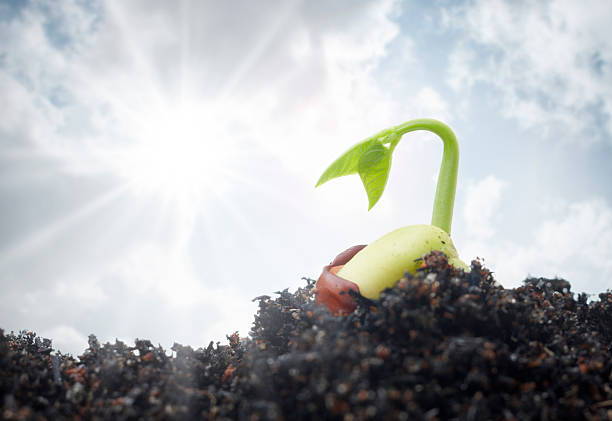Seeds of Opportunity: The African Growth Series
January 2024 | Issue 2
In this week's issue, you will learn more about:
- AFRICA OPPORTUNITY: Transforming Economic Zones for the Fourth Industrial Revolution (IR4)
- AFRICA OPPORTUNITY: Pharmaceutical Growth After Pandemic Performance
- AFRICA OPPORTUNITY: The Benefit of a Visa-Free Africa
- AFRICA TREND: Investor & Start-Up Interactions
AFRICA OPPORTUNITY: Transforming Economic Zones for the Fourth Industrial Revolution (IR4)
Arise IIP, a pan-African industrial ecosystem developer, is set to invest up to $300 million in Special Economic Zones (SEZs) in Ghana's Western Region. This strategic move aligns with Ghana's commitment to industrialization and reducing import dependency.
With Ghana's digitalization initiatives, championed by Vice-President Mahamudu Bawumia, and the success stories of innovative startups like Jetstream Africa, Mazzuma, and Berry Health, the potential for SEZs in the Fourth Industrial Revolution is immense.

AFRICA OPPORTUNITY: Pharmaceutical Growth After Pandemic Performance
The African pharmaceutical market experienced rapid growth during the latter stages of the COVID-19 pandemic, particularly with vaccine rollouts and major government investments. The market saw a massive jump in revenue of 41.7% from 2021 to 2022, which slowed down to a still-high 8.1% the next year. Despite a significant reduction from 2022 to 2023, the market is expected to grow steadily. Revenue is projected to demonstrate an annual growth rate (CAGR 2023-2028) of 5.6%, resulting in a market volume of US$16 billion by 2028 from an estimated US$12.2 billion in 2023. The industry trend to support growth will come from increased local medicine production, supported by the government. International pharmaceutical companies and local businesses are competing to enhance Africa's healthcare manufacturing due to the increasing demand for generic drugs that are more affordable and accessible. Growth necessitates a combination of local and international efforts, as demonstrated by South Africa, which has the largest pharmaceutical market on the continent, followed by Egypt and Nigeria. Multinational companies dominate the market in South Africa, while local manufacturers play a more significant role in other countries. In the long run, growth opportunities exist around changing consumer preferences, greater local healthcare investment, and African research and development. There is a trend toward increasing investment in research and development, which is expected to lead to the development of new and innovative drugs, including Oncology Drugs, the largest market segment, which involves medications that treat, diagnose, and prevent cancer. In 2023, the projected market volume of the segment alone was US$2 billion. As African consumers across the continent become more health-conscious and earn more, they will continue to demand better access to healthcare products and services. This has already increased demand for pharmaceuticals, particularly for chronic diseases such as diabetes, hypertension, and cancer. Finally, the growth of the pharmaceutical industry will receive a boost as healthcare infrastructure improves, particularly in rural areas. This will improve the continent's poor access to healthcare services and medications and reduce the incidence of counterfeit drugs, boosting the formal pharmaceutical industry.

AFRICA OPPORTUNITY: The Benefit of a Visa-Free Africa
The opening of Africa’s borders, particularly in Rwanda, Kenya, Uganda, and Ethiopia, is predicted to revolutionise the continent more than ever. This strategic move is not just about geographical access; it's a gateway to unprecedented opportunities, including enabling cross-border technology exchanges, skilled workforce mobility, and fostering intra-African trade, which catalyses a transformative era.
The ripple effect extends beyond East Africa as more nations follow suit and dismantle barriers, particularly in Southern and Central Africa. This unlocking spree is a boon for micro, small, and medium enterprises, creating a conducive environment for growth. Sharing knowledge and technologies, especially in the fintech realm, is a game-changer.
Start-ups like Flutterwave, Payoneer, Geegpay by Raenest, and Palremit, equipped with multi-currency swap features, are strategically positioned to thrive in this era of porous borders. These innovations facilitate seamless currency exchange for expatriates, propelling sectors like agriculture and commerce toward new heights.
As we witness this paradigm shift, it's not just about economic growth but a testament to regional integration's strategic utilisation. As more countries open their borders, Africa’s economic prowess is suggested to improve, driven by enhanced trade and foreign investment.

AFRICA TREND: Investor & Start-Up Interactions
In 2023, there were fewer investors in Africa than in the previous year, with a 38% decrease. Despite this, there wasn't a mass exodus, with 619 unique investors still engaged in deals exceeding US$100k. Techstars emerged as the most prominent player, leading with 56 deals, a notable increase from previous years. Launch Africa Ventures, previously a top contender, experienced a decline in activity due to the exhaustion of its first fund. Catalyst Fund, which focuses on climate change ventures, joined the investment landscape. Nevertheless, well-known organisations such as Y Combinator saw a sharp decline, backing only 12 African startups in 2023, down from 43 in 2022. Despite these fluctuations, over 188 investors demonstrated consistent commitment over the past three years. While the decrease in investment activity might seem alarming, it's essential to consider the broader context, including ongoing fundraising efforts and other market dynamics, before jumping to conclusions about the future of investment in Africa.

To find out more about opportunities in Africa, please get in touch with Lynne Martin.
Lynne Martin
Rebecca Mabika
